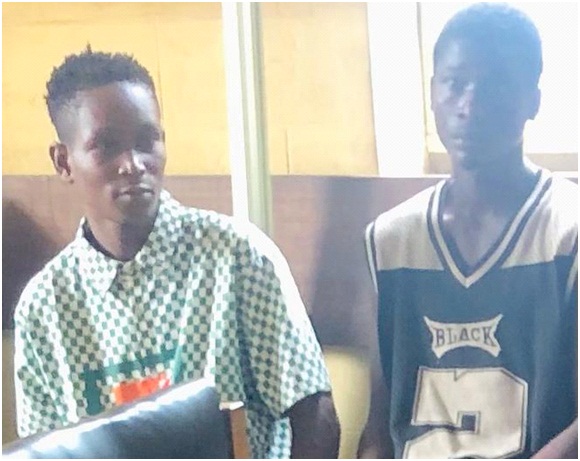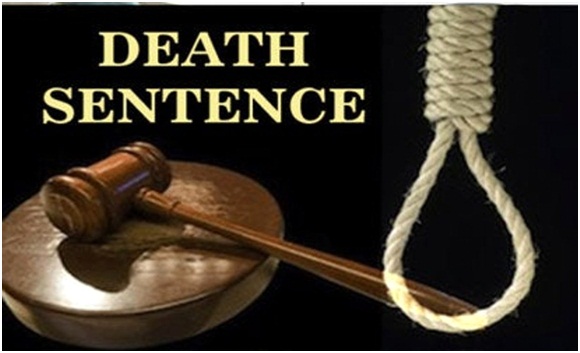Social support as panacea to Nigeria’s problems
By Afolabi Aribigbola
|
The media is awash with various vices, crimes, and myriads of problems prevalent and are in fact escalating in all parts of the country especially among the rising youth population in Nigeria. This ugly development and associated heightened insecurity have become a serious source of concern to many Nigerians including this writer. From north to south, east to west of Nigeria, crimes and criminality abound in different dimensions and scales. Every passing day one hears or reads about crimes causing loss of valuable lives and property. Unfortunately, it seems that the security agents are overwhelmed and it appears that the state is not doing enough to stem this very dangerous destructive trend.
Consequently, many individuals have come up with possible cause(s) of rising crimes and killings associated with them. This writer holds the view that the increasing violent crimes in Nigeria are a result of increasing poverty and economic deprivation, skyrocketing unemployment especially among the youths, and undue celebration of wealth and rich people. Others include lack of access to social services such as education, health and welfares services that make living conducive. People contended that since there is no employment for many, they take to the business of crime to make money to take care of themselves and family. These are serious issues promoting crime and criminality as well as decimation of life in the country at present.
The lack of support for the poor and vulnerable people including the aged, women and children also have been suggested to escalate criminal tendencies and activities in the country. In all parts of Nigeria at present, different forms of crimes are committed on a daily basis ranging from armed robbery, ritual killings, kidnapping, rape, domestic violence, child abuse, murder, burglary, financial crimes, cybercrimes, fraud, terrorism and lots more. The crime rate is not only alarming but has taken a dangerous dimension where under aged persons kill for the purpose of becoming wealthy.
To get out of this menace, one possible way is to create social support systems that provide assistance to the poor, the unemployed, depressed and vulnerable members of the Nigerian society. I believe that giving assistance and support to people as obtained in other more prosperous climes will go a long way to reduce people’s attractions to and participation in crimes and criminal activities. In Europe and America, there are widespread assistance and support services for all irrespective of their status in society. For instance, there is unemployment benefits to support those that lost their jobs or are unable to get employment; housing assistance in form of social housing are available for those who could not afford the cost of housing, and old and young receive all forms of assistance and support. For those that are depressed or are of unsound minds, there are institutions of state responsible for assisting these categories of people in form of counselling and rehabilitation
Of course, a few of these services existed in the past. However, the few available ones are moribund because they are not funded and if funded at all, the inadequate funds are often embezzled. Thus they have not been well developed and institutionalized to be able to function efficiently. They also lack legal backing and commitment by leaders in the country that are more concerned with what they can take from the state treasury. Consequently, there are no systematic organization and implementation of social support services in Nigeria. Rather it is those in authority that enjoy state support in all areas.
Indeed, there are arguments or theoretical propositions in support of social support systems. The summary of these propositions is that instrumental, informational, and emotional supports reduce the likelihood of delinquency and crime among people in a community. These propositions incorporate macro and micro-level effects, emphasizing how supportive societies and supportive relationships can lessen delinquency and crime rates. Social support is also implicated in the processes of social control and criminal justice, in that effective social control and rehabilitation are based on social support. Studies suggests that communities that were able to provide higher levels of social support have lower rates of juvenile crime as social support is an important element of adolescent well-being, and that social support can be a key factor in rehabilitating juvenile offenders.
The understanding and appreciation of the above positions in the more prosperous societies in Europe and America have motivated them to key into articulating social support programmes to support the needs of the poor and vulnerable people in their countries.
The reverse is the case in Nigeria. In our society, the state seems less concerned with the plight and suffering of the poor. In the real sense of it, instead of assisting the poor, it is the privileged members of the societies that are assisted. That is why free housing or accommodation, feeding and transportation are given to the President, Governors, Senators, Ministers and all political offices holders and even those in the top echelon in the private sectors. They also have unfettered access to other welfare facilities and services such as health and housing benefits. While these set of Nigerians are enjoying everything free, the poor and vulnerable are to fend for themselves. Inability to pay for the essential goods and services imply that they cannot enjoy them. It is an irony of events that the state support is provided for the privileged and rich people but the poor are neglected. The flaunting of wealth by these groups often motivate upcoming generations to seek to make money at all cost and the easiest way is to indulge in crime and criminality.
The reality is that the government of Nigeria must begin to seek ways to assist and support the poor and the vulnerable in the society. This will provide some solutions to the high crime rate and killings going on in the country. In Nigeria, it is individuals and groups, or organizations that are more involved in assisting the poor and aged people in the country at present. Most governments are less concerned. This is made possible by the inherited communal culture that permits sharing of things among siblings and family members. However, the age long family and community support system is facing disintegration in the country. The question is what happens to the vulnerable and the poor that cannot fend for themselves? This is where governments at local, state and federal levels must rise up to come up with programmes and policies to assist the needy moreso now that the economy of the country is in very poor state
Hitherto from the public sector, support for the poor and vulnerable have been eclectic and executed selectively to achieve political propaganda and not borne out of realization of the need to really assist the disadvantaged groups as envisaged in the social support propositions. The import of the above is that the country hosts a large population of poor and vulnerable people that cannot afford to feed themselves as well as access the good things of life.
Therefore, there is the need for organized support system involving the federal, state and local governments in the country. A situation where most governments are not concerned with the plight and suffering of large proportion of their population will continue to instigate and promote crimes and vices presently dominating the landscape of Nigeria. The need to create pro-poor programmes to assist the poor becomes imperative and they must be backed by enabling laws to institutionalize them as well ensure their continuity. Without this, the present rising crimes and its debilitating consequences will likely continue.










